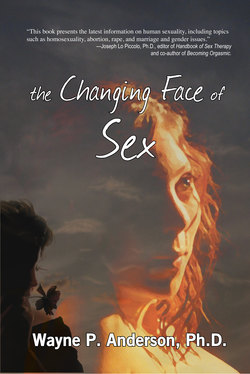Читать книгу The Changing Face of Sex - Wayne P. Anderson PhD - Страница 28
На сайте Литреса книга снята с продажи.
Women’s need to find meaning
ОглавлениеOn the other hand, there were some other more positive influences on my thinking about women as professionals. In the early ’60s as a Veteran Administration hospital psychologist, I had done some consulting with the personnel division on women volunteers, and had interviewed many of the applicants and published several articles about them in mental health journals.
The volunteers were women who were typically in their forties or early fifties, married with children who had left home. These volunteers were complaining of the boredom and the lack of meaning in their lives. Their husbands were busy with their careers and had a significant life role; these women had lost their most important role, “mother,” and were seeking to find a replacement.
They reported to me that the opportunity to volunteer at the hospital was putting some meaning back into their lives. The talk I gave in 1963 when I applied for the position as a professor at the University of Missouri was on this struggle some women were having in finding meaning in their lives after child rearing.
In 1963 I found that Betty Friedan’s Feminine Mystique captured the problems I had been hearing about, and her conclusions made sense to me based on what the women volunteers had told me.
As Friedan stated, “The problem lay buried, unspoken, for many years in the minds of American women. It was a strange stirring, a sense of dissatisfaction, a yearning [that is, a longing] that women suffered in the middle of the 20th century in the United States. Each suburban wife struggled with it alone. As she made the beds, shopped for groceries … she was afraid to ask even of herself the silent question — ‘Is this all?’”
Her book, of course, was the start of the women’s liberation movement. It was obvious that women needed meaningful work after their children left home and probably earlier. You had to have been a member of my generation to understand why this was such a significant change in attitude and why it was so difficult to sell the idea that women could want a career outside of her family.
Another factor in my growing awareness was my own family. I had four daughters who assumed they would have careers in something other than teaching and nursing, and a wife with a master’s degree in English who was considering going back to get a Ph.D. in psychology.
In the mid ’70s I began to accept women doctoral candidates and eventually 14 of the 37 doctoral committees I chaired were for women. If I were still supervising doctoral candidates at this point in history, the number of women would be considerably larger.
Besides women’s dissatisfaction with their roles, what other factors built up to the tipping point that changed our sexual behavior? Many! I will review what I see as some of the major influences on creating the tipping point in regards to premarital sexual intercourse.
